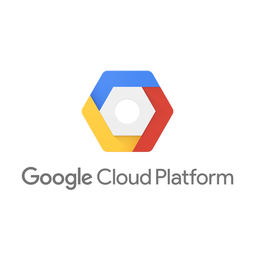Download PDF
Google Attribution 360 uncovers new opportunities to drive success and sales
Technology Category
- Analytics & Modeling - Real Time Analytics
Applicable Industries
- Electronics
Applicable Functions
- Sales & Marketing
Use Cases
- Demand Planning & Forecasting
Services
- Data Science Services
The Challenge
Lenovo, a global leader in personal technology, was facing challenges in marketing measurement. The company was using a rules-based measurement model that allowed multiple channel owners to claim credit for the same sales. Each channel reported results separately, resulting in inflated last-click attributed results of 371% of actual sales. This made it impossible to tell which marketing investments actually drove sales. Lenovo also had a blind spot regarding who was purchasing what. The company wanted to effectively reach existing customers to drive repeat purchases.
About The Customer
Lenovo is a Fortune 500 company and the #1 PC manufacturer globally. The company is a leader in personal technology, serving customers in more than 160 countries. Lenovo is known for its innovative products, efficient business model, and strong, diverse global team. The company is dedicated to excellence and is motivated to embrace new best practices in marketing measurement. Lenovo operates in the ultra-competitive consumer electronics market and is always looking for new opportunities for growth.
The Solution
Lenovo implemented Google Attribution 360 to end the practice of evaluating and optimizing each channel in a silo. The tool allowed Lenovo to analyze how marketing programs performed as a whole, optimize spending across channels, and allocate marketing budgets to drive incremental sales. In just six months, Attribution 360 delivered a new picture of marketing performance. With data from existing systems of record, website analytics, and ad servers, sales were re-analyzed with cross-channel, fractional credit. Once attributed, results reflected real sales. Lenovo learned that 75% of revenues resulted from multi-touch paths and 48% of engagement activity spanned multiple channels. The company also discovered that comparison shopping engines (CSEs) offer 20% better return on ad spend (ROAS) than the next best channel.
Operational Impact
Quantitative Benefit
Related Case Studies.

Case Study
Remote Temperature Monitoring of Perishable Goods Saves Money
RMONI was facing temperature monitoring challenges in a cold chain business. A cold chain must be established and maintained to ensure goods have been properly refrigerated during every step of the process, making temperature monitoring a critical business function. Manual registration practice can be very costly, labor intensive and prone to mistakes.

Case Study
Cloud Solution for Energy Management Platform-Schneider Electric
Schneider Electric required a cloud solution for its energy management platform to manage high computational operations, which were essential for catering to client requirements. As the business involves storage and analysis of huge amounts of data, the company also needed a convenient and scalable storage solution to facilitate operations efficiently.

Case Study
Leveraging the IoT to Gain a Competitive Edge in International Competition
Many large manufacturers in and outside Japan are competing for larger market share in the same space, expecting a growing demand for projectors in the areas of entertainment, which requires glamor and strong visual performance as well as digital signage that can attract people’s attention. “It is becoming more and more difficult to differentiate ourselves with stand-alone hardware products,” says Kazuyuki Kitagawa, Director of Service & Support at Panasonic AVC Networks. “In order for Panasonic to grow market share and overall business, it is essential for us to develop solutions that deliver significant added value.” Panasonic believes projection failure and quality deterioration should never happen. This is what and has driven them to make their projectors IoT-enabled. More specifically, Panasonic has developed a system that collects data from projectors, visualizes detailed operational statuses, and predicts issues and address them before failure occurs. Their projectors are embedded with a variety of sensors that measure power supply, voltage, video input/ output signals, intake/exhaust air temperatures, cooling fan operations, and light bulb operating time. These sensors have been used to make the projector more intelligent, automatically suspending operation when the temperature rises excessively, and automatically switching light bulbs. Although this was a great first step, Panasonic projectors were still not equipped with any capability to send the data over a network.








